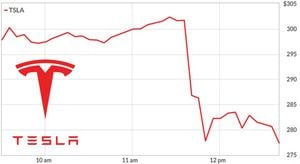German football club St. Pauli has decided to part ways with its primary sponsor, the online retailer X, amid controversies surrounding accusations of hate speech and offensive remarks made on social media. This decision has sparked discussions among fans, the football community, and the wider public, showcasing the increasing importance of corporate responsibility and ethical conduct within sports sponsorships.
The club, based in Hamburg, took this decisive step after examining the comments made by the CEO of X, who faced backlash for various statements perceived as inflammatory and derogatory. St. Pauli, known for its strong stance against discrimination and its commitment to social justice, felt compelled to take action, emphasizing the need for sponsors to align with the club's values.
Club President Oke Göttlich expressed the details of the situation during a press conference, stating, "St. Pauli stands against any kind of hate speech or discrimination. Sponsorship should reflect the values we uphold, and we can no longer support X after their CEO's recent remarks." This move, though potentially financially burdensome, underlines the club's dedication to maintaining its integrity.
The fallout from the decision to cut ties with X has been significant, raising questions about the responsibilities of companies involved with sports entities. Similarly, it reflects broader societal concerns about accountability for public figures and corporate leaders who utilize platforms like social media to express controversial or harmful views.
This doesn't stand alone; it fits within a growing trend across various sectors where organizations and individuals are under increasing scrutiny for their public statements and actions. Numerous athletes and clubs around the globe have faced intense pressure to sever relationships with sponsors or partners seen as problematic.
For generations, St. Pauli has cultivated a reputation as non-conformist and progressive, often standing at odds with traditional football culture. The club has regularly championed social causes, and its approach to this situation aligns with its long-standing principle of inclusivity which fans widely admire.
Critics of the decision, including some fans and sponsors, have raised concerns about the potential financial impacts on the club and whether the club’s ethics could lead to challenges securing future partnerships. Proponents, on the other hand, celebrated St. Pauli's choice to stand up for its values, arguing it sets an important precedent for maintaining principles over profit.
Sports analysts have weighed in on the situation, noting the shifting dynamics within the sponsorship world. They speculate this decision by St. Pauli may inspire other clubs to adopt similar stances when confronted with sponsors whose values do not align with their own. It pushes the narrative forward—that companies and individuals, particularly those driving public conversations, should exercise greater consideration for the words and sentiments they share.
At the heart of this situation is the well-documented fact of how influential sports sponsorship can be, not just financially, but also culturally. Fans expect their clubs to represent principles they believe in, and many have begun vocalizing their expectations much louder than before. If clubs fear backlash from their fan bases or the public, sponsors might discover their market position becomes increasingly tenuous as these conversations evolve.
It's also worth noting how the current digital age complicates things. Social media can amplify every comment; the risk attached to poor public relations can have lasting effects. For St. Pauli, the decision to cut ties was not merely about the immediate issue at hand, but also about establishing their long-term narrative. They seek to show they would not tolerate views contrary to their ethos—a reiteration of their belief system.
Looking forward, St. Pauli’s management will face the task of finding new partners who align with their values. This search will not just be about the financial benefits sponsorship can bring; it will also require careful vetting of prospective partners to prevent future controversies.
While the broader football community reflects on the lessons from this chapter, St. Pauli seems positioned to lead the way. Their willingness to prioritize ethics over financial gain sends ripples through the industry, encouraging reflection on what it means to support teams driven by social principles.
Undoubtedly, this incident has brought both challenges and opportunities to St. Pauli and the football world at large. The hope is for other organizations to learn from their response, crafting environments where accountability thrives. With fans increasingly demanding integrity from clubs and sponsors alike, there may be no turning back from this new age of scrutiny.



